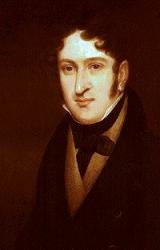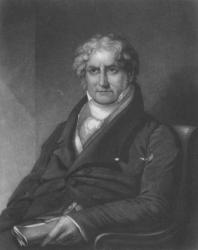Planning worship?
Check out our sister site, ZeteoSearch.org,
for 20+ additional resources related to your search.
- |
User Links
Person Results
Bryn Nixon
Scripture: Proverbs 1-31 Arranger of "[From the mountains to the valleys]" in More Voices
Bryn Nixon
Henry K. Oliver
1800 - 1885 Person Name: H. K. Oliver, 1800-1885 Scripture: Proverbs 31:26-28 Composer of "FEDERAL STREET" in The Hymnal Henry Kemble Oliver (b. Beverly, MA, 1800; d. Salem, MA, 1885) was educated at Harvard and Dartmouth. He taught in the public schools of Salem (1818-1842) and was superintendent of the Atlantic Cotton Mills in Lawrence, Massachusetts (1848-1858). His civic service included being mayor of Lawrence (18591861) and Salem (1877-1880), state treasurer (1861-1865), and organizer of the Massachusetts Bureau of Statistics and Labor (1867-1873). Oliver was organist at several churches, including Park Street Congregational Church in Boston, North Church in Salem, and the Unitarian Church in Lawrence. A founder of the Mozart Association and several choral societies in Salem, he published his hymn tunes in Hymn and Psalm Tunes (1860) and Original Hymn Tunes (1875).
Bert Polman
Henry K. Oliver
Henry R. Bishop

1786 - 1855 Person Name: Henry Bishop Scripture: Proverbs 31:10-31 Composer (attributed to) of "MADRID" in Celebremos Su Gloria Bishop, Henry Rowley, was born at London, Nov. 18, 1786, and died at London, April 30, 1855. See a full notice in the Dictionary of Nat. Biog., v., 91. From 1840 he was occasional and from 1843 to 1848 sole conductor of the Antient Concerts. Of his Twelve Corales...as sung at the Concerts of Ancient Music, for which (with Words expressly written to them) they were adapted and arranged by Sir Henry R. Bishop, 1844 (B. M. copy is H. 878), some are fairly literal translations from the German, others have no connection with their nominal originals. Three were noted in this Dictionary, but their source not having been traced in 1892, we now subjoin them:—
1. Behold, how glorious is yon sky, p. 127, ii. This is from "Wie herrlich ist die neue Welt" in C. H. Graun's oratorio Der Tod Jesu, 1756 (B. M. copy, 11. 1805, catalogued as 1766), the words being by Karl Wilhelm Ramler, b. Feb. 25, 1725, at Colberg, in Pomerania; 1748, Professor of Literature at the Cadet School in Berlin; d. at Berlin, April 11, 1798.
2. God is our Refuge in distress, Our Shield, p. 325, i.
3. O let us praise the Lord, With hearts of true devotion, p. 963, ii., No. 4. The Winchester Hymn Book, 1857, alters stanza i., the original line 1. 3, 4 being:—
"Whose spirit roams abroad,
To calm life's troubled ocean."
Another fairly close version is,"Wake, O wake! a voice is crying," from "Wachet auf," p. 805, ii. [Rev. James Mearns, M.A.]
--John Julian, Dictionary of Hymnology, New Supplement (1907)
Henry R. Bishop
Benjamin Carr

1768 - 1831 Scripture: Proverbs 31:10-31 Arranger of "MADRID" in Celebremos Su Gloria
Benjamin Carr
Ludwig van Beethoven

1770 - 1827 Scripture: Proverbs 31:10-31 Composer of "HYMN TO JOY" in Celebremos Su Gloria A giant in the history of music, Ludwig van Beethoven (b. Bonn, Germany, 1770; d. Vienna, Austria, 1827) progressed from early musical promise to worldwide, lasting fame. By the age of fourteen he was an accomplished viola and organ player, but he became famous primarily because of his compositions, including nine symphonies, eleven overtures, thirty piano sonatas, sixteen string quartets, the Mass in C, and the Missa Solemnis. He wrote no music for congregational use, but various arrangers adapted some of his musical themes as hymn tunes; the most famous of these is ODE TO JOY from the Ninth Symphony. Although it would appear that the great calamity of Beethoven's life was his loss of hearing, which turned to total deafness during the last decade of his life, he composed his greatest works during this period.
Bert Polman
Ludwig van Beethoven
Edward Hodges

1796 - 1867 Scripture: Proverbs 31:10-31 Arranger of "HYMN TO JOY" in Celebremos Su Gloria Born: July 20, 1796, Bristol, England.
Died: September 1, 1867, Clifton, Bristol, England.
Buried: Church of St. Mary the Virgin, Stanton Drew (about eight miles south of Bristol).
Hodges’ musical gift showed itself at an early age; by 1819, he was playing the organ at St. James’ Church in Bristol, and at St. Nicholas’, 1821-1838. He also had an interesting mechanical bent, and spurred several technical improvements in organ design. He composed a number of services and anthem pieces, and Cambridge University awarded him a doctorate in music in 1825.
Hodges eventually emigrated, accepting a post at the cathedral in Toronto, Canada, in 1838. The next year, he became music director at Trinity Parish in New York City. He became the organist at Trinity Church when it opened in 1846 (the church had its organ built to his specifications). He retired for health reasons in 1859, and returned to his native England in 1863. Hodges’ works include:
An Apology for Church Music and Musical Festivals, in Answer…to the Standard and the Record (London: 1834)
Essays on the Objects of Musical Study (Bristol, England: 1838)
An Essay on the Cultivation of Church Music (New York: 1841)
Contributions to the Quarterly Musical Magazine & Musical World
Trinity Collection of Church Music (Boston, Massachusetts: 1864) (editor)
Music--
BRISTOL
GLOUCESTER
HABAKKUK
HYMN TO JOY
--www.hymntime.com/
Edward Hodges
William B. Bradbury

1816 - 1868 Person Name: William B. Bradbury, 1816-1868 Scripture: Proverbs 31:30 Composer of "SWEET HOUR" in African Methodist Episcopal Church Hymnal William Bachelder Bradbury USA 1816-1868. Born at York, ME, he was raised on his father's farm, with rainy days spent in a shoe-shop, the custom in those days. He loved music and spent spare hours practicing any music he could find. In 1830 the family moved to Boston, where he first saw and heard an organ and piano, and other instruments. He became an organist at 15. He attended Dr. Lowell Mason's singing classes, and later sang in the Bowdoin Street church choir. Dr. Mason became a good friend. He made $100/yr playing the organ, and was still in Dr. Mason's choir. Dr. Mason gave him a chance to teach singing in Machias, ME, which he accepted. He returned to Boston the following year to marry Adra Esther Fessenden in 1838, then relocated to Saint John, New Brunswick. Where his efforts were not much appreciated, so he returned to Boston. He was offered charge of music and organ at the First Baptist Church of Brooklyn. That led to similar work at the Baptist Tabernacle, New York City, where he also started a singing class. That started singing schools in various parts of the city, and eventually resulted in music festivals, held at the Broadway Tabernacle, a prominent city event. He conducted a 1000 children choir there, which resulted in music being taught as regular study in public schools of the city. He began writing music and publishing it. In 1847 he went with his wife to Europe to study with some of the music masters in London and also Germany. He attended Mendelssohn funeral while there. He went to Switzerland before returning to the states, and upon returning, commenced teaching, conducting conventions, composing, and editing music books. In 1851, with his brother, Edward, he began manufacturring Bradbury pianos, which became popular. Also, he had a small office in one of his warehouses in New York and often went there to spend time in private devotions. As a professor, he edited 59 books of sacred and secular music, much of which he wrote. He attended the Presbyterian church in Bloomfield, NJ, for many years later in life. He contracted tuberculosis the last two years of his life.
John Perry
William B. Bradbury


 My Starred Hymns
My Starred Hymns


